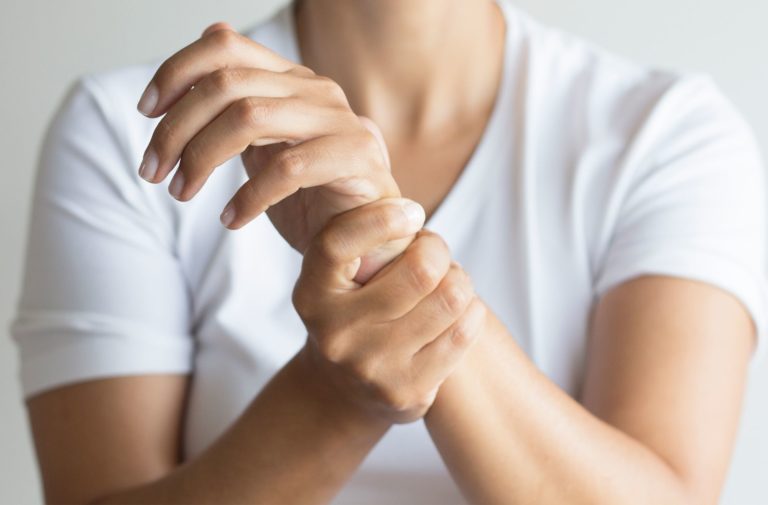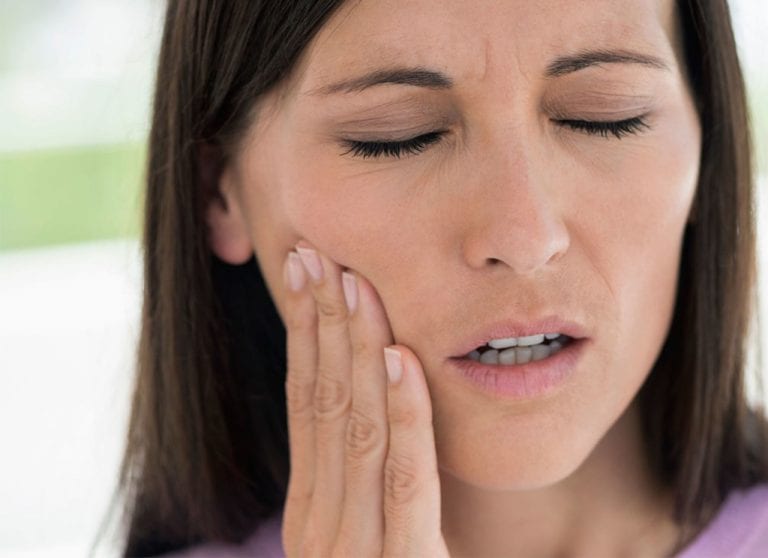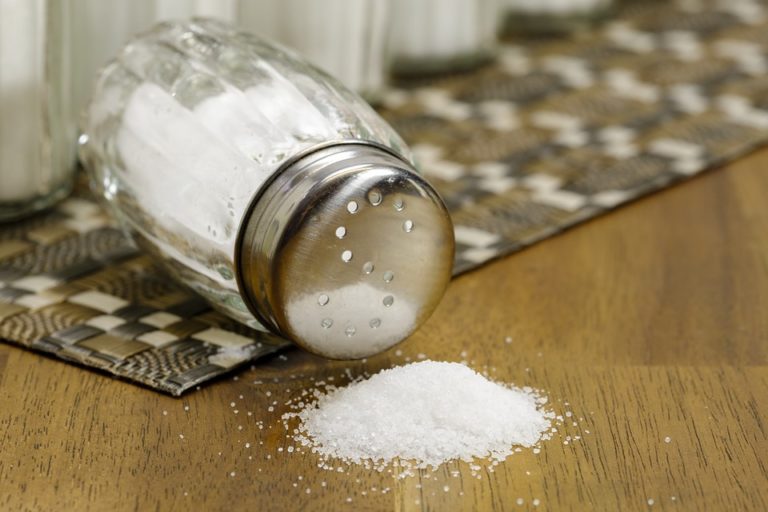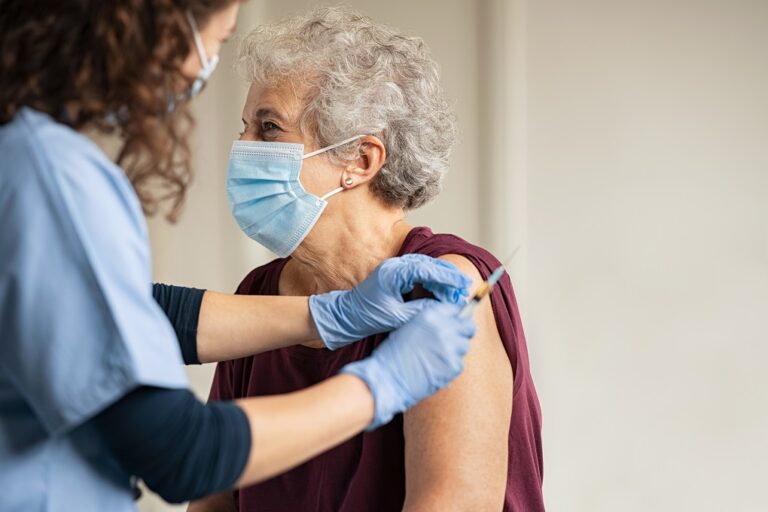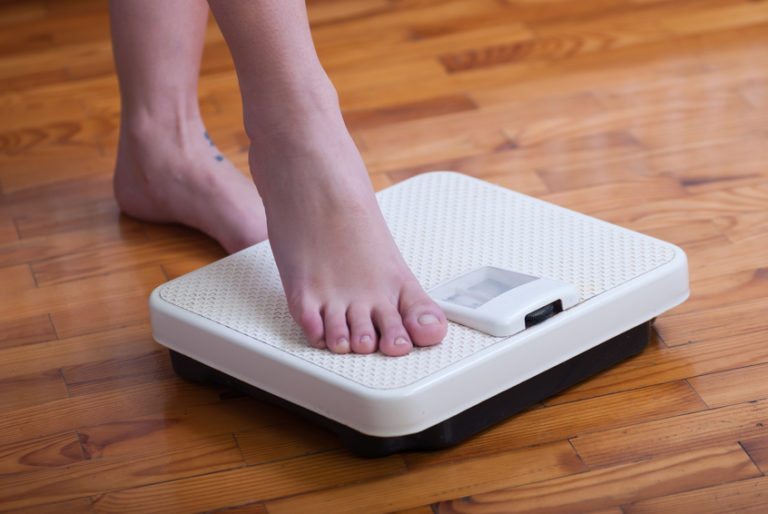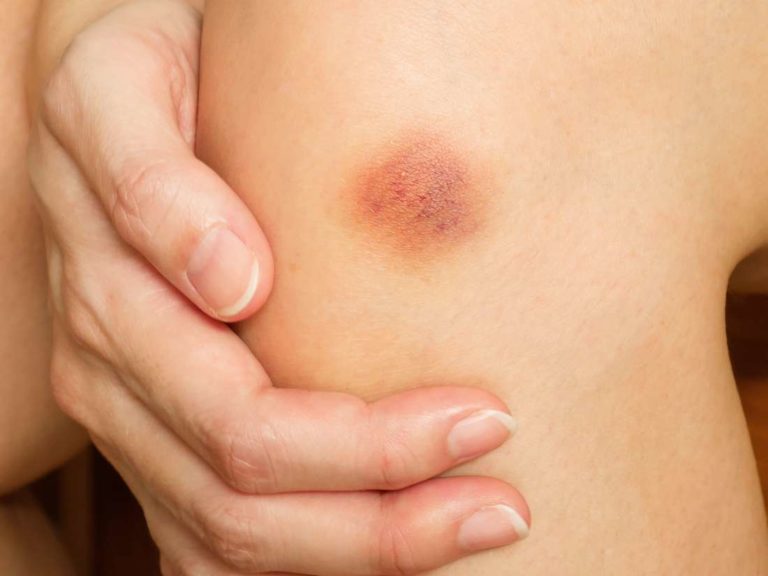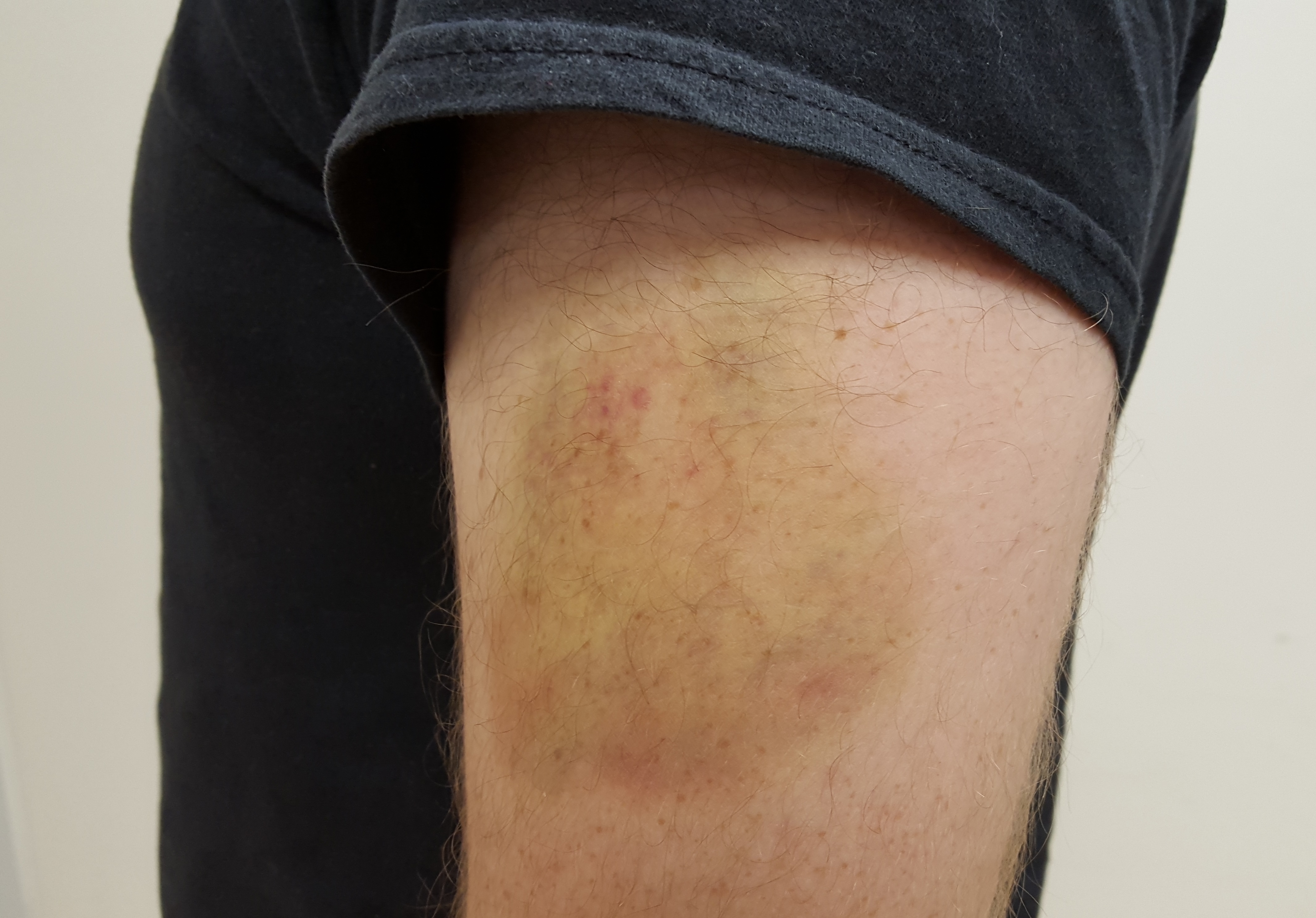
We’ve all been there – a shin to a coffee table or a trip on the sidewalk can leave you with a black-and-blue or two. But what is a bruise, exactly?
“A bruise is a reflection of minor injury to the blood vessels under the surface of the skin. If these vessels are damaged, a small amount of blood can leak out, giving the classic blue, black, or purple discoloration,” says Cory Fisher, DO, family medicine physician at the Cleveland Clinic.
But what if you seem to be bruising easily, developing bruises on your legs, arms, and other parts of your body from even just a slight bump, or seemingly out of nowhere? Should you be worried?
Certain supplements could be to blame.
Some dietary supplements may contribute to unexplained bruising, including feverfew, garlic, ginger, gingko, ginseng, omega-3 fatty acids (fish oil), saw palmetto, and vitamin E, due to their potential effects on blood platelets.
This is a good reminder to talk to your doctor before you take any supplement for any reason – not only can they can interact with other meds you’ve been prescribed, but they also aren’t FDA-regulated, so you may not be swallowing exactly what you expect.
It’s another perk of being a woman!
Unfair, but true: Women tend to bruise more easily than men. Guys have thicker skin, and they also have more collagen, which holds blood vessels more securely in skin and protects them from trauma.
Estrogen also plays a role in bruising easily, since the hormone can prevent blood vessel walls from building. And it also acts as a vasodilator, which means it opens up blood vessels. If trauma happens, more blood can slip out before it’s able to clot.
You’re simply getting older.
Easy bruising is “incredibly common in the 60+ population,” says Gary Goldenberg, MD, assistant clinical professor of dermatology at the Icahn School of Medicine at Mount Sinai Hospital. “It takes a lot less trauma to create a bruise than it ever did before in your life.”
Why? “Skin gets thinner as you age, and blood vessels get more friable,” both of which make you more prone to bruising easily, says Dr. Fisher. “With thinning skin, you lose fat and collagen that previously protected your blood vessels. And your blood vessels also lose elasticity, making them more prone to break.”
You’re taking meds that thin your blood.
If you’re on a blood-thinning medication to treat heart arrhythmia or blood clots, that’s a simple explanation for unexplained bruising, says Dr. Fisher. But you may also be taking other drugs that have a blood-thinning effect without even realizing it, like ibuprofen or aspirin.
These reduce your blood’s ability to clot properly, so bleeding due to capillary (blood vessel) damage may go on for longer than usual, allowing blood to leak and form a bruise.
…or you have an actual blood disorder.
Hemophilia and von Willebrand disease are both blood disorders that can cause easy bruising, says Dr. Fisher. Hemophilia is a rare condition that affects the blood’s ability to clot, putting someone at risk for severe bleeding from just a slight injury.
Von Willebrand disease is a milder and somewhat more common clotting disorder often characterized by bleeding during dental work, long-lasting nosebleeds, blood in urine or stool, and heavy periods.
It could be a side effect of antidepressants.
Selective serotonin reuptake inhibitors (a.k.a. SSRIs) are a common class of antidepressants that have impacts beyond the brain. “Some of the most well-studied include SSRIs, like fluoxetine, sertraline, citalopram, and bupropion, can interact with platelets, which are an important part of the clotting process,” says Dr. Fisher.
Corticosteroids are thinning your skin.
Corticosteroids – topical or systemic medications used to treat various health conditions – can make you bruise easily because they can cause the skin to become thinner. These drugs are often used to relieve swelling, redness, itching, and other allergic-type symptoms.
Most commonly, topical corticosteroids are prescribed for skin conditions like eczema and psoriasis, while oral corticosteroids may be recommended for things like asthma, allergies, and other inflammatory conditions.
You have a vitamin deficiency.
Deficiencies in vitamins C and K can cause unexplained bruising – but if you live in a developed nation and have regular access to healthy food, then it’s highly unlikely this applies to you. These deficiencies typically occur only in severely undernourished populations, explains Dr. Fisher.
Vitamin C, in particular, is important in wound healing and the production of collagen, an important structural component of skin. Without enough of it, your blood vessels are out in the open and more likely to rupture.
Iron deficiency anemia is more common, and can also cause easy bruising, since your body requires iron to make hemoglobin, which helps circulate oxygen throughout your body. Other symptoms to watch for include dry and cracked lips, odd food cravings, and brittle nails.



